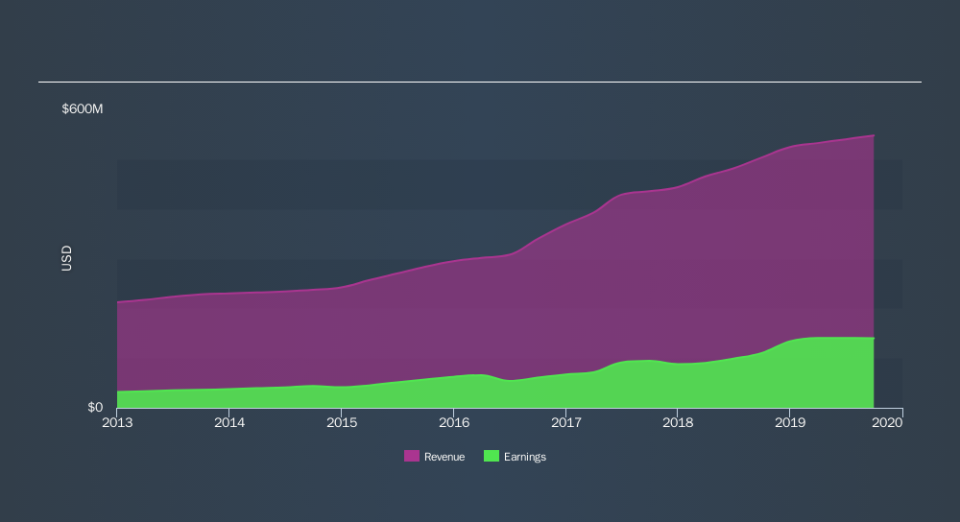TowneBank (NASDAQ:TOWN): What Does Its Beta Value Mean For Your Portfolio?

If you own shares in TowneBank (NASDAQ:TOWN) then it's worth thinking about how it contributes to the volatility of your portfolio, overall. In finance, Beta is a measure of volatility. Modern finance theory considers volatility to be a measure of risk, and there are two main types of price volatility. First, we have company specific volatility, which is the price gyrations of an individual stock. Holding at least 8 stocks can reduce this kind of risk across a portfolio. The second type is the broader market volatility, which you cannot diversify away, since it arises from macroeconomic factors which directly affects all the stocks on the market.
Some stocks see their prices move in concert with the market. Others tend towards stronger, gentler or unrelated price movements. Beta is a widely used metric to measure a stock's exposure to market risk (volatility). Before we go on, it's worth noting that Warren Buffett pointed out in his 2014 letter to shareholders that 'volatility is far from synonymous with risk.' Having said that, beta can still be rather useful. The first thing to understand about beta is that the beta of the overall market is one. A stock with a beta greater than one is more sensitive to broader market movements than a stock with a beta of less than one.
Check out our latest analysis for TowneBank
What does TOWN's beta value mean to investors?
Zooming in on TowneBank, we see it has a five year beta of 1.09. This is above 1, so historically its share price has been influenced by the broader volatility of the stock market. If the past is any guide, we would expect that TowneBank shares will rise quicker than the markets in times of optimism, but fall faster in times of pessimism. Beta is worth considering, but it's also important to consider whether TowneBank is growing earnings and revenue. You can take a look for yourself, below.
Does TOWN's size influence the expected beta?
TowneBank is a reasonably big company, with a market capitalisation of US$2.0b. Most companies this size are actively traded with decent volumes of shares changing hands each day. It takes deep pocketed investors to influence the share price of a large company, so it's a little unusual to see companies this size with high beta values. It may be that that this company is more heavily impacted by broader economic factors than most.
What this means for you:
Since TowneBank has a reasonably high beta, it's worth considering why it is so heavily influenced by broader market sentiment. For example, it might be a high growth stock or have a lot of operating leverage in its business model. This article aims to educate investors about beta values, but it's well worth looking at important company-specific fundamentals such as TowneBank’s financial health and performance track record. I highly recommend you dive deeper by considering the following:
Future Outlook: What are well-informed industry analysts predicting for TOWN’s future growth? Take a look at our free research report of analyst consensus for TOWN’s outlook.
Past Track Record: Has TOWN been consistently performing well irrespective of the ups and downs in the market? Go into more detail in the past performance analysis and take a look at the free visual representations of TOWN's historicals for more clarity.
Other Interesting Stocks: It's worth checking to see how TOWN measures up against other companies on valuation. You could start with this free list of prospective options.
If you spot an error that warrants correction, please contact the editor at editorial-team@simplywallst.com. This article by Simply Wall St is general in nature. It does not constitute a recommendation to buy or sell any stock, and does not take account of your objectives, or your financial situation. Simply Wall St has no position in the stocks mentioned.
We aim to bring you long-term focused research analysis driven by fundamental data. Note that our analysis may not factor in the latest price-sensitive company announcements or qualitative material. Thank you for reading.

